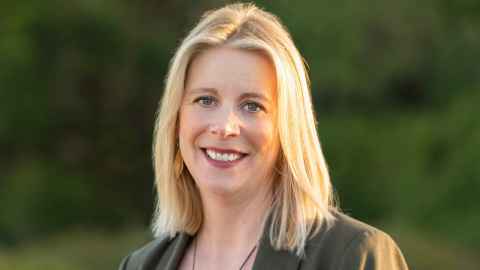Trove of letters reveals how older people coped with lockdown isolation
13 December 2021
Trove of hundreds of letters collected by University of Auckland researchers shows how older people coped with lockdown isolation.

Nearly 800 letters recording the lockdown experiences of older New Zealanders were collected in a University of Auckland research project called Have Our Say and will be held by the Auckland War Memorial Museum.
“It turns out some people coped exceptionally well, defying ageist stereotypes of fragility, vulnerability and weakness,” says Professor Merryn Gott, of the School of Nursing.
Researchers at the University appealed for written accounts of older people’s experiences to understand how they coped with enforced isolation, and to amplify elders’ voices often not heard in the media.
Lockdown was “simply one of the best times I’ve experienced,” wrote Ian Roberts, who lives near Palmerston North and is aged in his 70s. “We are not all fragile people,” wrote another respondent. It was annoying “to see ourselves categorised as vulnerable, incapable and IQ-deprived old simpletons,” said a third.
Samples of the letters, mostly written by people over 70, are at Have Our Say and cover from March 2020, when the nation was in lockdown level four, through to December 2020.
“One thing that stood out for us is that many of those who wrote were surprised – or even shocked – to find out they were now seen as ‘old’ and lumped into a demographic that they didn’t identify with,” says co-researcher Dr Tessa Morgan. “Still vital and active and now told they were vulnerable and to sit at home and wait for help.”
Common threads included the importance of daily routines and the extra perspective that comes from a long life.
Some people coped exceptionally well, defying ageist stereotypes of fragility, vulnerability and weakness.
When Yvonne Knight, 85, heard her grandsons grumble about restrictions, she reminded them that as a 12-year-old she’d lived through the 1947 polio epidemic with shuttered schools, school assignments delivered by post, and a ban on children at movies, public pools and gatherings.
In addition, the letters showed how older New Zealanders worked hard to remain socially engaged despite restrictions. Contrary to the stereotype that older people don’t do well with new technologies, they were quite willing to learn – or already knew – how to Zoom and use other online platforms.
However, for many, nothing could beat in-person connection.
“This is important to acknowledge,” says Dr Morgan. “There’s a tendency to talk about digital technology as being the answer to older people’s loneliness when actually face-to-face interaction and touch are essential, especially for those in residential aged care.”
The letters showed older people’s contributions to society’s efforts to get through the pandemic.
“Many had volunteered their time to support others, and some were even essential workers, like nurses and plumbers,” says Professor Gott.
The researchers acknowledged that the people who took part in the study tended to be well-resourced, rather than a representative sample of the whole population.
The Have Our Say study is part of the bi-cultural Te Ārai Palliative Care and End of Life Research group’s research into issues important to older adults.
Dr Lisa Williams and Dr Tess Moeke-Maxwell from the School of Nursing and Associate Professor Janine Wiles, from the School of Population Health, are among those working on the project. Currently a study led by Dr Moeke-Maxwell, Rāpua Te Mārama, is exploring the end-of-life experiences of Maori whānau who had people die in their bubbles during lockdown 2020.
The letter project was funded by a charitable trust, the Auckland Medical Research Foundation.
Media contact
Paul Panckhurst | media adviser
M: 022 032 8475
E: paul.panckhurst@auckland.ac.nz